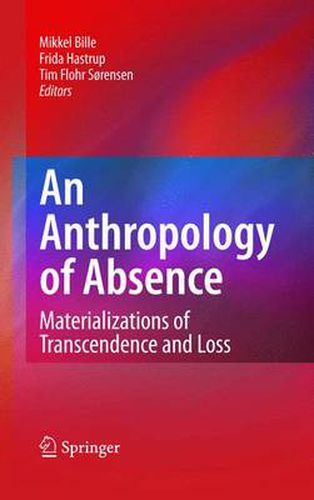Readings Newsletter
Become a Readings Member to make your shopping experience even easier.
Sign in or sign up for free!
You’re not far away from qualifying for FREE standard shipping within Australia
You’ve qualified for FREE standard shipping within Australia
The cart is loading…






This title is printed to order. This book may have been self-published. If so, we cannot guarantee the quality of the content. In the main most books will have gone through the editing process however some may not. We therefore suggest that you be aware of this before ordering this book. If in doubt check either the author or publisher’s details as we are unable to accept any returns unless they are faulty. Please contact us if you have any questions.
In studying material culture, anthropologists and archaeologists use meaningful physical objects from a culture to help understand the less tangible aspects of that culture, such as societal structure, rituals, and values. What happens when these objects are destroyed, by war, natural disaster, or other historical events? Through detailed explanations of eleven international case studies, the contributions reveal that the absence of objects can be just as telling as their presence, while the objects created to memorialize a loss also have important cultural implications.
Covering everything from organ donation, to funerary rituals, to prisoners of war, The Archaeology of Absence is written at an important intersection of archaeological and anthropological study. Divided into three sections, this volume uses the presence of absence to compare cultural perceptions of: material qualities and created memory, the mind/body connection, temporality, and death.
This rich text provides a strong theoretical framework for anthropologists and archaeologists studying material culture.
$9.00 standard shipping within Australia
FREE standard shipping within Australia for orders over $100.00
Express & International shipping calculated at checkout
Stock availability can be subject to change without notice. We recommend calling the shop or contacting our online team to check availability of low stock items. Please see our Shopping Online page for more details.
This title is printed to order. This book may have been self-published. If so, we cannot guarantee the quality of the content. In the main most books will have gone through the editing process however some may not. We therefore suggest that you be aware of this before ordering this book. If in doubt check either the author or publisher’s details as we are unable to accept any returns unless they are faulty. Please contact us if you have any questions.
In studying material culture, anthropologists and archaeologists use meaningful physical objects from a culture to help understand the less tangible aspects of that culture, such as societal structure, rituals, and values. What happens when these objects are destroyed, by war, natural disaster, or other historical events? Through detailed explanations of eleven international case studies, the contributions reveal that the absence of objects can be just as telling as their presence, while the objects created to memorialize a loss also have important cultural implications.
Covering everything from organ donation, to funerary rituals, to prisoners of war, The Archaeology of Absence is written at an important intersection of archaeological and anthropological study. Divided into three sections, this volume uses the presence of absence to compare cultural perceptions of: material qualities and created memory, the mind/body connection, temporality, and death.
This rich text provides a strong theoretical framework for anthropologists and archaeologists studying material culture.